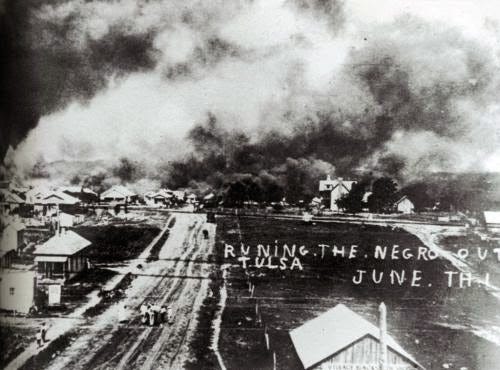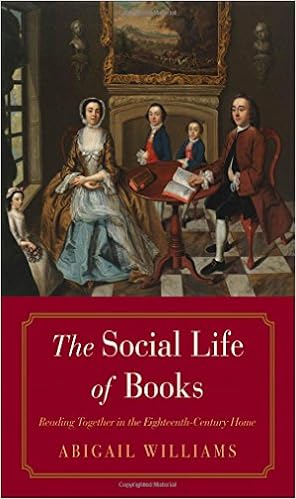Born In the USA On The Fourth Of July
. . . . In some ways, the 4th here was anything but pleasant.
That yesterday's reading during the birthday of the nation, July 4th, started with the late 19th century Red River Valley,
* switched to Springsteen's autobiography,
Born to Run, then moved on Holger Hoock's
Scars of Independence: America's Violent Birth, likely contributed to the disquiet.
What is so disturbing when contemplating the initiation of our national independence from Britain, isn't so much what happened between the two opposing armies and what they did to each other, as what took place on the ground, among our own civilians: those who were determined to break away from the Crown, those who wished to stay with England, and those who really had no skin in the game at all and didn't give a damn either way. Those who were not for it were harassed at best, tortured and murdered at worst, and in very terrible ways. Their families lost everything including loved husbands, fathers, siblings, mothers and sons and daughters
Then, today, a New Mexico amigo forwarded this, which exacerbated my unrest:
"Albuquerque’s hot summer of angst, decay and politics"
nmpolitics.net
As the administration of Albuquerque Mayor Richard Berry enters its final months, histories of critical times are being recorded.
Moving to Albuquerque way way way back in the day was my initiation into the public violence
* * that is this nation from the beginning. I'd been shielded from that previously because where I had been living, violence for people like me was confined to the home, at the hands of the family, not in the public realm.
Reading this piece brought back those first years in New Mexico where all the public realm violence I've ever experienced, from break-ins to beatings and rape, happened to me. Just about woman I knew had been a victim of rape, break-ins, thefts, street harassment, etc. And the women I knew who had been fortunate enough to not have been victims of this violence had dedicated their lives to trying to stop it, and to help victims heals.
I've never forgotten the
1980 New Mexico State Penitentiary Riot. (A BBC history of the Penitentiary Riot c
an be watched here on Youtube.) This inhuman horror remains probably the most violent and terrible prison riot in the history of the US. Recalling the accounts of that terrible event still make me literally ill. It's astounding-- or not, this being the USA, about which history I know intimately now in detail, breadth and scope that I didn't then -- that it hasn't changed in all these years, just intensified.
 |
| Boston Patriots destroy Governor Hutchinson's home; The family just barely escaped with their lives. The history of Massachusetts that Governor Hutchinson had been working on much his life, drawing on primary documents in his family's possession, was destroyed, along with all the family papers, that dated from the founding of the Massachusetts colony. |
 |
| Mobs attack a Tory 1775 |
 |
A "kingsman', tarred and feathered.
This was a very popular, and gruesome form of public humiliation . The naked body of the victim was scalded from head to toe with hot tar, then rolled in bird feathers. The victim was usually further shoved upon a rail and paraded throughout the town for hours, and then expelled, still naked and covered in tar and feathers.
Throughout the career of the Sons of Liberty the organization enjoyed the quiet blessing of the well-to-do and politically active that backed separation from Britain. In essence, the Sons of Liberty became the extralegal enforcement arm of the American cause against Parliament. Support us or this and worse will (and did) happen to you! |
Though smaller in scale, many of the many violent actions, i.e.
criminal acts, with which the Patriots, Sons of Liberty and other well organized mobs forced everyone living in the 13 colonies to war with Britain were as sickeningly
vicious as the New Mexico State Penitentiary Riot of 1980.
By now, I thought, reading again accounts of these actions, it seems the nation as a whole has caught up with Albuquerque, and many other towns in places like Arizona, Louisiana, Texas, Mississippi, Kansas, etc., all of which have been following in the footsteps of the start of Independence.
Yes, the nation has actually gone to hell.
Funny. I don't think I mean by the country's gone to hell what my relatives have meant, as they've repeated for decades that 'this country's gone to hell' in that special tone of flat fury. I'm sure they're now pleased as punch that they've made a paranoid, deranged, ignorant, lazy, greedy, lying, arrogant, vengeful, obsessive, cowardly, racist, woman-hating, narcissist bully, who hates everyone who isn't him, asshole in chief of the USA. He's just like us!
Yah, looking over the news today, July 4th, 2017 was a Greeeeeeeeeeeaaaaaaaaaaaaaaaat Day in the USA.
Just look at these asshole minions' response to the NPR tradition of reading the Declaration of Independence every July 4th on Morning Edition. when this year NPR's twitter feed put the Declaration of Independence up:
Ay-up this country's gone to hell and the minions have driven it there with every breath they take.
We now even have our own national religious patriotism totalitarian bloviating hymn to national violence. (It can be seen and heard here, on Youtube.
I'm only putting the link here, as I cannot bear putting a grab of the video itself on my blog. How many words does this travesty have? 20? Come on guys, you surely are smart enough to know that one teeny tweak and 'great again can be white again. Come on, you know you want to!
Ask Jared Yates Sexton. America's violent spirit is alive and kicking, especially kicking anyone it perceives as Not It.
 |
| Burning black Tulsa, June, 1921 |
 |
| Chicago, Red Summer 1919, race riots -- meaning white people rioted, black people were murdered. |
These people are just waiting -- itching -- for Someone to give them the signal to start the killing -- again.
--------------------------
* Lest one think that the Red River Valley in North Dakota back in 1888 was free of racial and other violence, my reading yesterday included accounts of killing Sioux who lived a bit further north in Pembina Cty., an Italian immigrant discovered dead -- and robbed of his wages from working all spring, summer and fall on a Bonanza farm -- in a granary of wheat, and offhand remarks about Jews, and how often men got drunk and beat their wives and children -- particularly on the holiday of the 4th of July.
** For me, public violence = crime, concentration camps, genocides, prisons, riots.






















